Author Profile – Lisa T. Bergren
 Lisa T. Bergren is the author of over thirty books, so you may wonder how it is that she needs an introduction. As it happens, Lisa is somewhat of an eclectic writer—she has books in a variety of genres: non-fiction, children’s picture books, romance, historical, suspense, YA.
Lisa T. Bergren is the author of over thirty books, so you may wonder how it is that she needs an introduction. As it happens, Lisa is somewhat of an eclectic writer—she has books in a variety of genres: non-fiction, children’s picture books, romance, historical, suspense, YA.
I first became aware of Lisa’s work when the CSFF Blog Tour featured the first title, Begotten, in her supernatural suspense series, The Gifted, back in April 2008. The epic trilogy is set in medieval times.
More recently, however, Lisa has written two time-travel young adult series, The River of Time: Waterfall, Cascade, Torrent, Bourne & Tributary, Deluge; and River of Time California, Three Wishes and the newly released, Four Winds. Rather than falling into the science fiction category, however, these stories relate more nearly to fantasy because they take the protagonists back in time to medieval settings.
In that respect, then, Lisa is fairly new to speculative fiction and thus my thought that an introduction would be appropriate.
Lisa was born in Kalispell, Montana, on March 28 and raised in Southern California (there must be a story behind that transition!) Growing up she wanted to be “A nurse. An astronaut. Indiana Jones. A teacher. A journalist. One of the Three Musketeers.” Writing, apparently, has made it possible for her to become any of these through her characters.
After high school she went on to get a degree in English literature from the University of California at Irvine. Post graduation she became, among other things, a “ski bum” in Park City, Utah, but it was there she renewed her faith in Jesus Christ. Now she describes herself as “a disciple of Christ, desiring to walk close enough to him to be covered in the dust from his sandals.”
Currently she lives in Colorado Springs, Colorado, with her husband Tim and their three children, Olivia, Emma, and Jack.
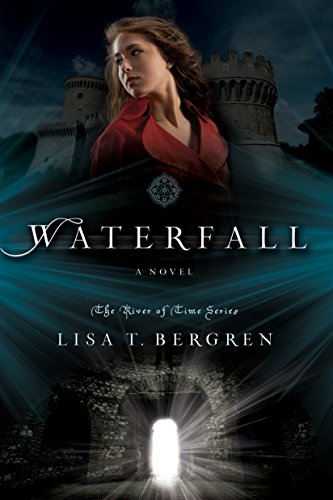 Her daughters were the big motivation for her decision to write a YA series. For, oh so long, these girls were reluctant readers—and then the Twilight books came out. The oldest in particular took to them, full force. Lisa stayed involved, discussing the books with her daughter as she read them and taking her to the first movie. It was there, seeing all those young girls longing for suspense and romance, that Lisa first thought of writing for that audience.
Her daughters were the big motivation for her decision to write a YA series. For, oh so long, these girls were reluctant readers—and then the Twilight books came out. The oldest in particular took to them, full force. Lisa stayed involved, discussing the books with her daughter as she read them and taking her to the first movie. It was there, seeing all those young girls longing for suspense and romance, that Lisa first thought of writing for that audience.
Lisa is one of the few writers I know who starts with setting. She does her best research by traveling to the location of her story, and there she comes up with interesting characters and plot ideas. Her travels have taken her to Egypt, England, France, Italy. She’s gone scuba diving in the Red Sea, ridden a camel for a photo op at the Great Pyramids, and taken a ride on a gondola in Venice.
In addition to writing and travel, Lisa is a “mompreneur,” caring for her home and family, a business consultant, a freelance editor, and an occasional speaker. Formerly she worked as a publishing executive.
You can connect with Lisa (and she enjoys getting to know readers) at her web site, Facebook, Twitter, and Goodreads.
This post is an updated version of one that first appeared at A Christian Worldview Of Fiction.
































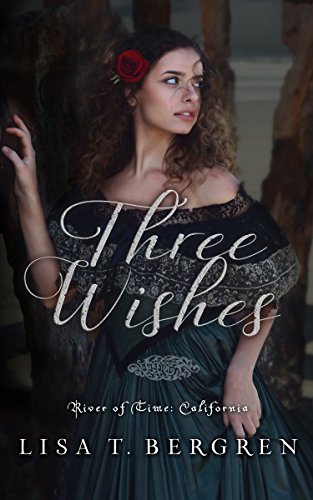
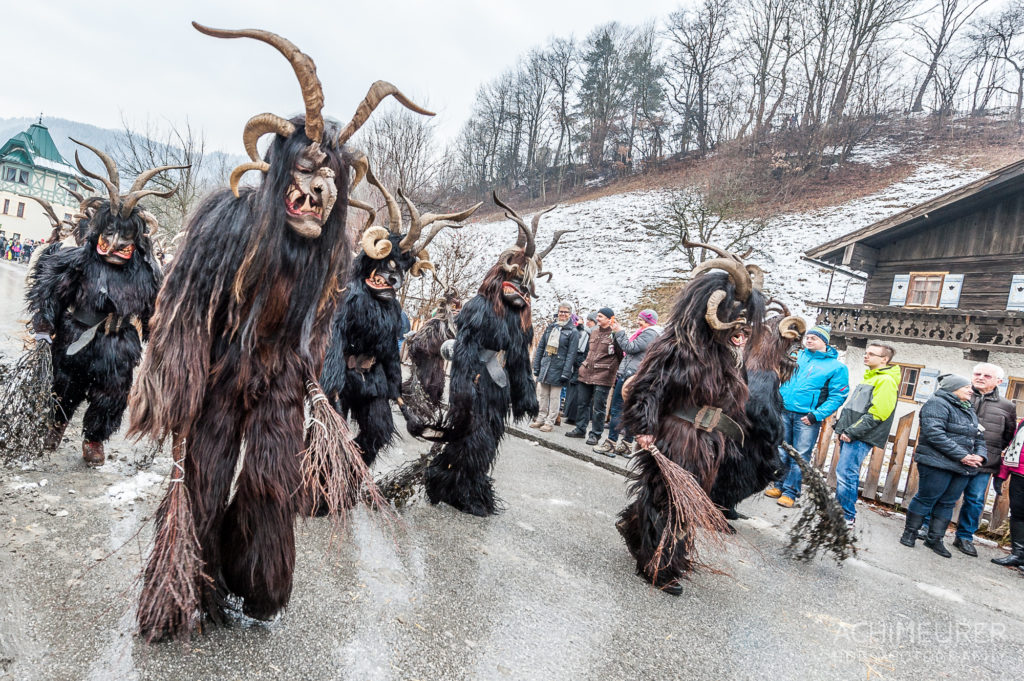
 In Italy, “Befana” is an old hag who swoops down chimneys with her broomstick, earning her the nickname “The Christmas Witch.” Instead of jolly old Santa Claus, imagine waking up to find a sooty crone placing presents under the tree. “GrĂ˝la” is an Icelandic mountain troll who is the mother of the “Yule Lads,” Iceland’s version of Santa Claus. But GrĂ˝la is not grandma baking Christmas cookies; she creeps into sleeping towns and devours children who misbehave. “Perchta” comes from Bavarian folklore and is a goddess of sorts who had a fondness for spinning (representing honest, hard work). During the Christmas season, she would seek out the local children and determine who had been working hard and minding their parents and who had not. If the children were good, they would find a silver coin next to their beds. If they had been naughty, Perchta would slit open their stomachs, remove their guts, and stuff the cavity with straw.
In Italy, “Befana” is an old hag who swoops down chimneys with her broomstick, earning her the nickname “The Christmas Witch.” Instead of jolly old Santa Claus, imagine waking up to find a sooty crone placing presents under the tree. “GrĂ˝la” is an Icelandic mountain troll who is the mother of the “Yule Lads,” Iceland’s version of Santa Claus. But GrĂ˝la is not grandma baking Christmas cookies; she creeps into sleeping towns and devours children who misbehave. “Perchta” comes from Bavarian folklore and is a goddess of sorts who had a fondness for spinning (representing honest, hard work). During the Christmas season, she would seek out the local children and determine who had been working hard and minding their parents and who had not. If the children were good, they would find a silver coin next to their beds. If they had been naughty, Perchta would slit open their stomachs, remove their guts, and stuff the cavity with straw.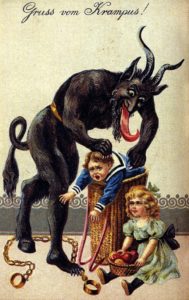 Sinterklaas is assisted by “Zwarte Piet,” or “Black Pete,” a Moor from Spain. Revelers and party-goers dress in blackface and clown costumes, and this has attracted quite a bit of scorn in recent years.
Sinterklaas is assisted by “Zwarte Piet,” or “Black Pete,” a Moor from Spain. Revelers and party-goers dress in blackface and clown costumes, and this has attracted quite a bit of scorn in recent years.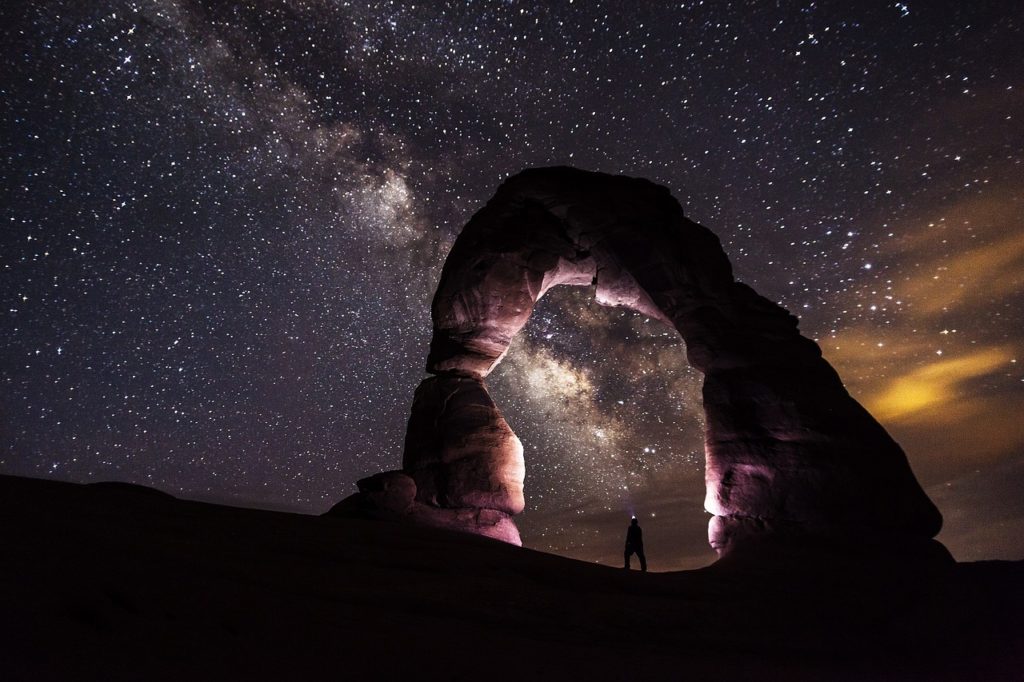
 When was the last time you looked up at the stars? Not just glanced up, or noticed their faint appearance in passing, but actually stood outside on a dark night and turned your face to the heavens?
When was the last time you looked up at the stars? Not just glanced up, or noticed their faint appearance in passing, but actually stood outside on a dark night and turned your face to the heavens? When it comes to fantasy, itâs about the world, the setting, the environment. Have you ever watched travel shows, or shows that let you glimpse a corner of the world so breathtakingly beautiful yet foreign that your eyes pop and your jaw drops, and you think, âThatâs actually a real place?â (Which is one reason why the Lord of the Rings movies are incredible.)
When it comes to fantasy, itâs about the world, the setting, the environment. Have you ever watched travel shows, or shows that let you glimpse a corner of the world so breathtakingly beautiful yet foreign that your eyes pop and your jaw drops, and you think, âThatâs actually a real place?â (Which is one reason why the Lord of the Rings movies are incredible.) Which is one of the reasons I enjoy fantasy so much. Often, the characters are pushed, or dragged, outside the scope of their inwardly focused existence.
Which is one of the reasons I enjoy fantasy so much. Often, the characters are pushed, or dragged, outside the scope of their inwardly focused existence.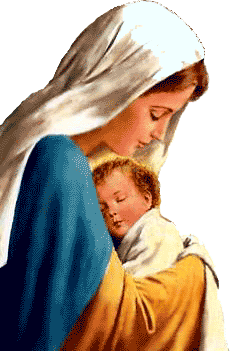

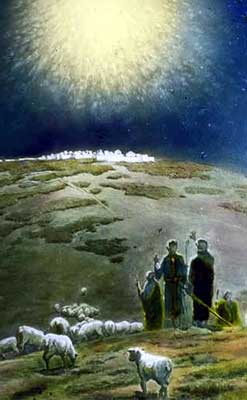

 Shannon Dittemore is an author of young adult fiction. She has an overactive imagination and a passion for truth. Her lifelong journey to combine the two is responsible for a stint at Portland Bible College, performances with local theater companies, and a love of all things literary. When she isnât writing, she spends her days with her husband, Matt, imagining things unseen and chasing their two children around their home in Northern California.
Shannon Dittemore is an author of young adult fiction. She has an overactive imagination and a passion for truth. Her lifelong journey to combine the two is responsible for a stint at Portland Bible College, performances with local theater companies, and a love of all things literary. When she isnât writing, she spends her days with her husband, Matt, imagining things unseen and chasing their two children around their home in Northern California.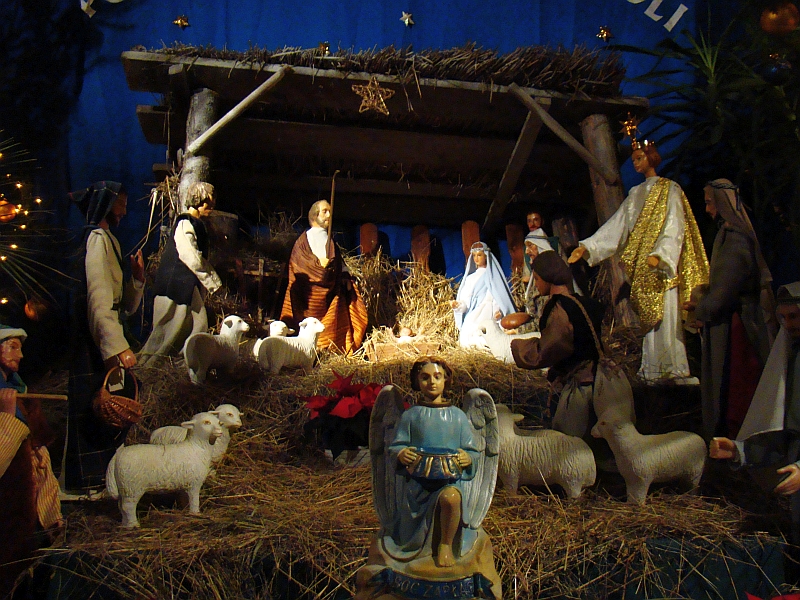

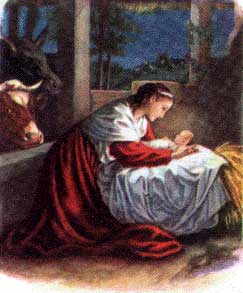 Jesus, born of Mary, was God’s first step onto earth in the skin of Man. It was the beginning. Everything that night of Jesus’s birth was a shout—the great, glorious plan of redemption, worked out before the foundations of the world, was unfolding. It was being revealed to us who, through Him, would become believers in God.
Jesus, born of Mary, was God’s first step onto earth in the skin of Man. It was the beginning. Everything that night of Jesus’s birth was a shout—the great, glorious plan of redemption, worked out before the foundations of the world, was unfolding. It was being revealed to us who, through Him, would become believers in God. 
 If you listen long enough, you will discover that Christmas is too much of many things. It is too commercial, too materialistic, too Christian, too pagan, too saccharine and nothing but an excuse for shameless capitalistic mongering. These opinions will be with us until the end of Christmas, and I have no ambitions of dislodging them. But there is one I would like to dispute.
If you listen long enough, you will discover that Christmas is too much of many things. It is too commercial, too materialistic, too Christian, too pagan, too saccharine and nothing but an excuse for shameless capitalistic mongering. These opinions will be with us until the end of Christmas, and I have no ambitions of dislodging them. But there is one I would like to dispute. eer and Santa, or angels and the manger and the star â and it is plain that neither Saturn nor the sun-gods have anything to do with it.
eer and Santa, or angels and the manger and the star â and it is plain that neither Saturn nor the sun-gods have anything to do with it.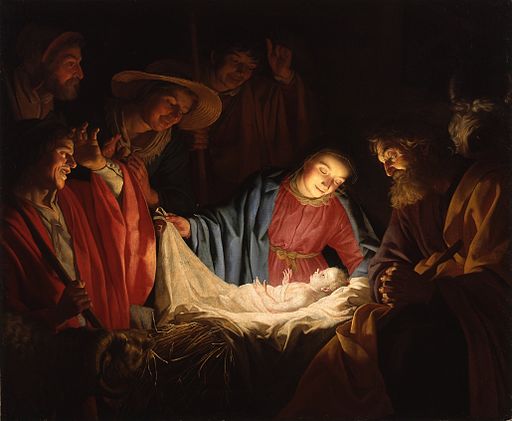
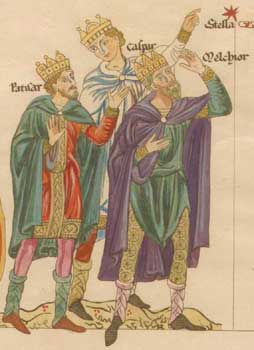 A bloodthirsty tyrant.
A bloodthirsty tyrant. Decked out with all the trimmings of an epic tale, the Gospel taleâof which the Christmas story stands as the centerpieceâis the one âmythâ that actually came true. In it, we glimpse familiar elements common to many imaginative stories. As Tolkien explained in his essay âOn Fairy Storiesâ:
Decked out with all the trimmings of an epic tale, the Gospel taleâof which the Christmas story stands as the centerpieceâis the one âmythâ that actually came true. In it, we glimpse familiar elements common to many imaginative stories. As Tolkien explained in his essay âOn Fairy Storiesâ:
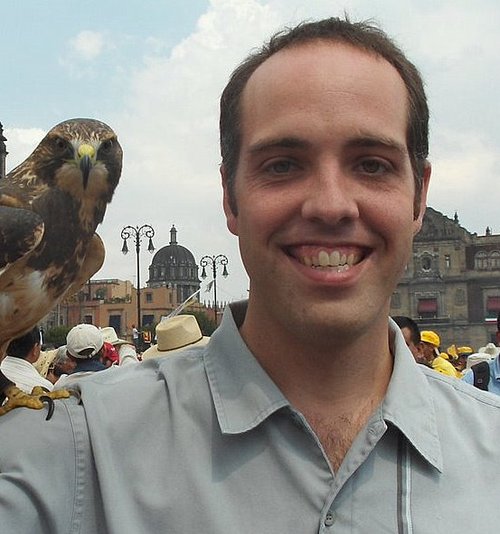
 Matt Mikalatos, known for his humorous quasi-autobiographical contemporary adult fantasies, Imaginary Jesus and Night of the Living Dead Christians, shifted gears three years ago, proving yet again how talented he is. Three years ago he released is a middle grade fantasy entitled
Matt Mikalatos, known for his humorous quasi-autobiographical contemporary adult fantasies, Imaginary Jesus and Night of the Living Dead Christians, shifted gears three years ago, proving yet again how talented he is. Three years ago he released is a middle grade fantasy entitled  The Story. Validus Smith and her best friend Alex Shields know something is seriously wrong when their substitute teacher takes the side of the class bully. When he changes into a creature with fangs and tries to attack Validus, they escape by following two new students through a hole into a different world—one in which animals talk.
The Story. Validus Smith and her best friend Alex Shields know something is seriously wrong when their substitute teacher takes the side of the class bully. When he changes into a creature with fangs and tries to attack Validus, they escape by following two new students through a hole into a different world—one in which animals talk.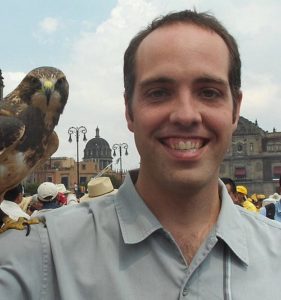 Matt Mikalatos works for a non-profit dedicated to helping people live better, fuller lives. He has done non-profit work all over the world, and he and his family lived in Asia for several years. He currently lives in the Portland, Oregon area with his wife and three daughters.
Matt Mikalatos works for a non-profit dedicated to helping people live better, fuller lives. He has done non-profit work all over the world, and he and his family lived in Asia for several years. He currently lives in the Portland, Oregon area with his wife and three daughters.
 INTRODUCTION
INTRODUCTION Once there was a little small-town girl. She grew up two blocks away from the old, creaky public library. She spent much of her time in that library, either squirreled away in a dusky corner with a book, or loading chin-high stacks of books home to read. Usually barefoot and disheveled. Always brim-full of curiosity and awe at the secret worlds she knew sheâd find between those pages.
Once there was a little small-town girl. She grew up two blocks away from the old, creaky public library. She spent much of her time in that library, either squirreled away in a dusky corner with a book, or loading chin-high stacks of books home to read. Usually barefoot and disheveled. Always brim-full of curiosity and awe at the secret worlds she knew sheâd find between those pages.


